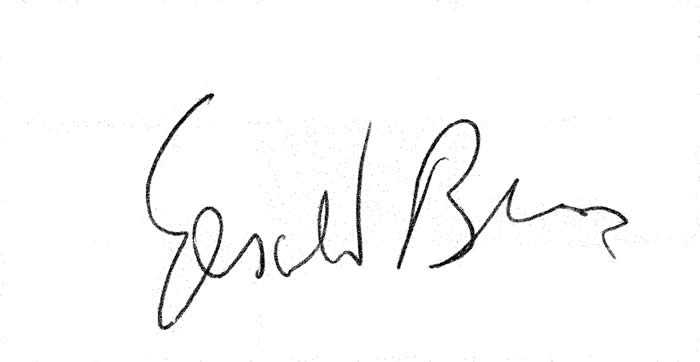
Mr. Grieve grieved, that he had no time, his hand on a dictionary (two fingers
as usual holding open two separate places as the Faun in Mallarmé, well)
to know all the words. He was not proficient in Latvian; Urdu defeated him though
they were workers, and words a kind of work. A wise fool suggested he submit
to the received orthography his text on the thistle and the moon. He'd agreed.
For what? distribution in the US where they stand in front of Irish bars in kilties?
That could, after all, be their bravery. And syntax, mother and muse, Dame Accidence,
itself so beautiful and linear, though senses in their nature collateral may be rendered
in a sentence locked into itself as a benzene ring, or the moon. One hundred
forty-eight words for moon he knew, could greet on desert sand in laddered caftan
or crisp Abercrombie tropicals in rain forest, her in speech appropriate to the region
or measure her in azimuthic hieroglyphs. Yet no direction sprang from this, as the
words came out of nowhere, stripped of their vectors. A friend calls from a town
so small there's no rooms to rent, not controlled by government. What's being
interrupted, then. The Zen people say give yourself time, as if it's in your gift,
my circumjill of fields outside silvered runaway wheat and thistle, two worlds
in one, ruled by the raven and the vole, respectively. Shrews with their offspring
spread out in a V behind meet one another and sing, the kind of poetry
I like "song" with the voice sublimed away like tracks in snow, words depriving
themselves by forbearance of color though the words for color, ascetic to no
purpose other than to render a quality of light the fools call "reflected." All
light's original, its children shadows like meanings inferrable from syntax, he
thought, or pretended to think, pretended thoughts appropriate to duplicitous light.
The alchemist decided to give up reading. There were too many words, all of them about
things. Lifting eye from page he looked at the glass containers, pictures of the glassblowers'
lungs, on dusty wooden shelves, each with its animal pickled in everything
from brine to brandy -- a bat, many kinds of snakes, a baby pterodactyl (paler
than in life from a bleaching quality of the preservative), one wrinkled wing still
clinging to its shell as on the day he found it and plupped it into his collecting bag,
small mammals with bubbles, some gas or other, tucked in among the fur, their
mouths grinning or pursed as in dismay, resigned to death, forbidden to decay,
and thought how little like they were to metals. Your plowshare, Lucretius saith,
left in a field diminishes from year to year, trickling presumptive atoms into the
abrupted furrow. These dried beetles and mummified cats (one with a necklace
of green-blue beads) reside in glass which would be metal if not breakable,
worthy if it were of a planetary symbol, but anyway arrested in their business
of not-being, as metals might be caught in temporary purity, the symbols
each's planet might be said to utter in character like the rich fool in Rudens,
Pluto's toady, unfair as gold which has its horoscope, unfitted to the plow. To last
a thousand years like brandy in a sealed tube is pointless if no one drinks it. I could
break open these, reduce their liquids slowly, slowly, drink it and be -- what? dead
as Socrates, or sleep it off in my cellar, torpid as a mole, if style alone, unbreakable
as (say) Baudelaire in his prose poems, would guarantee I could invent French,
every word of Montaigne fated as the parts of this mute lizard. And did it too.
Mr. Grieve, grieving, went to bed with Samuel Johnson and Voltaire, two volumes
slammed together like the Bible and Darwin in Spencer Tracy's black-and-white preserved hand.
Mandrills holding mandrels keep a shop, sell jewels mounted or wrapped
in small squares of paper, white so their color is perceptible, angled
facets of dark stones or light stones reflecting light while refracting it,
doubled, onto the paper and out again (do darkest ruby or sapphire
tint them blue or red?) A stone the color of dark tea might please in silver,
the apes' fur from greenish tan to burnt sienna, modulated.
Their hands are squarish palms, long-fingered, with which they fold the jewels.
Copyright Gerald Burns 1995-1997